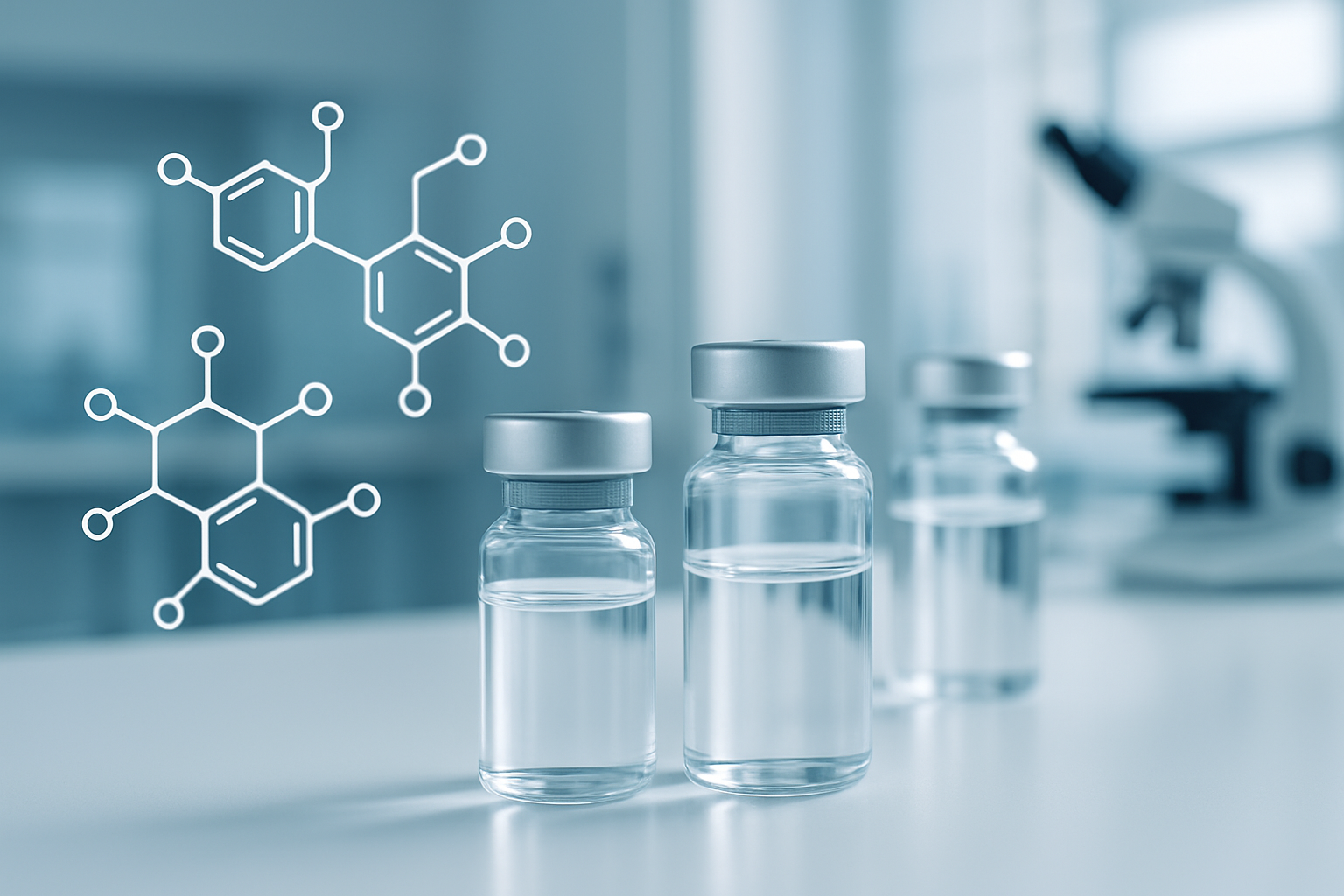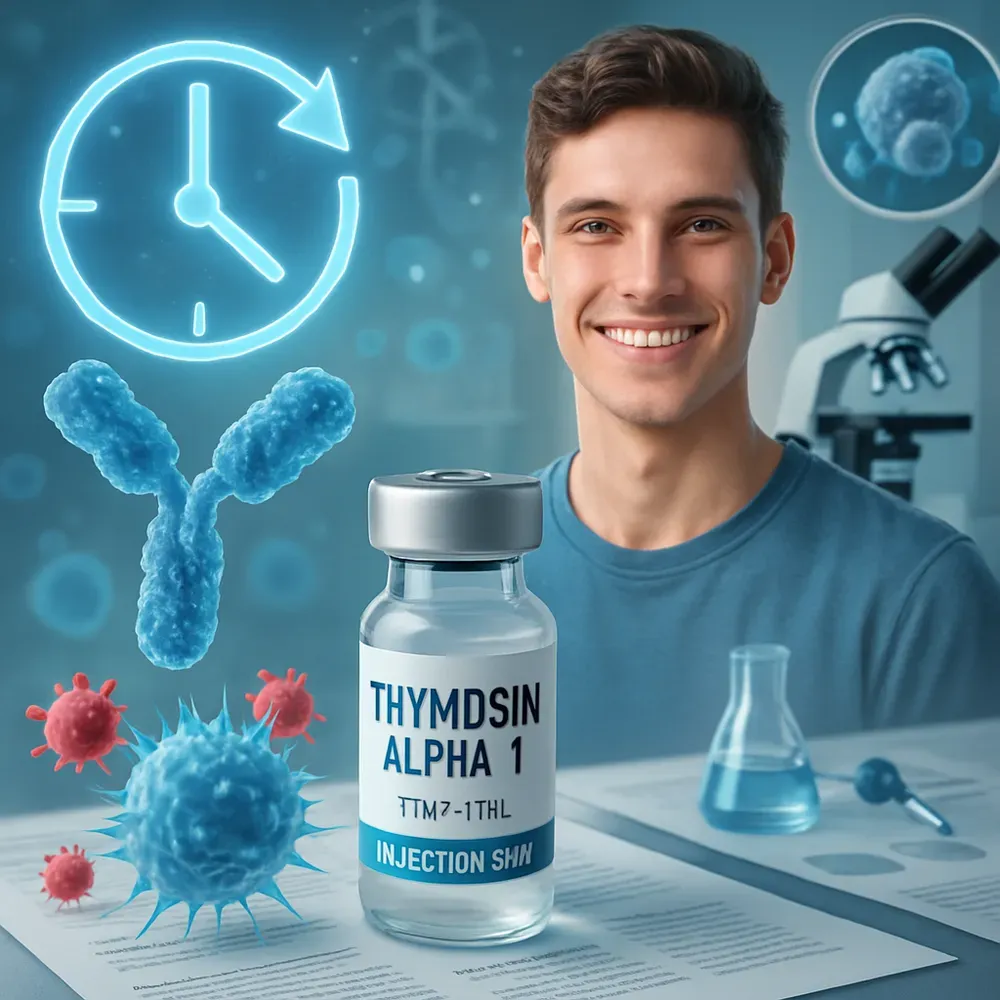What Peptides Can Compounding Pharmacies Legally Sell in 2025?
A Complete Guide to FDA Regulations, Banned Substances, and Compliance Requirements

The landscape of peptide compounding has changed dramatically. With recent FDA crackdowns, shortage exceptions expiring, and over 150 warning letters issued in 2025 alone, knowing what's legal isn't just important—it's essential for both pharmacies and consumers.
If you're wondering whether your pharmacy can compound semaglutide, tirzepatide, BPC-157, or other popular peptides, this guide breaks down exactly what's allowed, what's banned, and what the penalties are for getting it wrong.
1. Core Legal Restrictions (503A vs 503B)
Not all compounding pharmacies operate under the same rules. The FDA distinguishes between two types of facilities, each with vastly different capabilities:
| Rule | 503A (Traditional Pharmacy) | 503B (Outsourcing Facility) |
|---|---|---|
| Patient-specific prescription required? | YES | NO (can make office stock) |
| Bulk drug substances allowed? | Only from FDA’s 503A Bulks List | From 503B Bulks List (stricter) |
| Can copy FDA-approved drugs? | NO — unless "clinically different" or during shortage | NO — unless on shortage list |
| Interstate sales limit | ≤5% of total prescriptions | Unlimited |
| CGMP required? | NO (USP <795>/<797>) | YES (full FDA GMP) |
| Adverse event reporting? | Voluntary | Mandatory |
Bottom line: You cannot legally compound a peptide if it’s:
- FDA-approved and not in shortage
- Not on the FDA Bulks List
- Marketed for general use (not patient-specific)
2. FDA Bulk Drug Substances Lists (What Peptides Are Allowed?)
The FDA maintains
three lists that determine which peptides can be used in compounding:
| List | Status | Peptides Allowed? |
|---|---|---|
| Category 1 (Approved for Compounding) | Active | Very few peptides (e.g., vasopressin, oxytocin, cosyntropin) |
| Category 2 (Under Review) | Pending | Some peptides in evaluation |
| Category 3 (NOT Allowed) | Banned | GLP-1s, GHRPs, BPC-157, TB-500, etc. |
Officially Banned or Restricted Peptides (2025)
| Peptide | Status | Reason |
|---|---|---|
| Semaglutide | BANNED post-shortage (Feb 2025) | FDA-approved (Ozempic/Wegovy); off shortage list |
| Tirzepatide | BANNED post-shortage (Oct 2024) | FDA-approved (Mounjaro/Zepbound) |
| Retatrutide, Cagrilintide | NEVER allowed | Investigational; no approval |
| BPC-157 | NOT on any bulks list | No clinical data; safety unknown |
| TB-500 (Thymosin Beta-4) | BANNED | Not on bulks list; no FDA review |
| Ipamorelin, CJC-1295, GHRP-6 | NOT allowed | Not on bulks list; no safety data |
| AOD-9604, Tesamorelin | Gray area | Not on list; some 503B tried — got warning letters |
Source: FDA Bulks List (updated Sep 2025)
3. Shortage Exception (Temporary Loophole — Now Closed)
| Drug | Shortage Period | Compounding Allowed Until |
|---|---|---|
| Tirzepatide | 2023 – Oct 2, 2024 | Dec 2024 (503A) / Jan 2025 (503B) |
| Semaglutide | 2023 – Feb 7, 2025 | Apr 2025 (503A) / May 2025 (503B) |
- After these dates: No compounding allowed — even with a prescription.
- FDA issued >150 warning letters in 2025 for continued sales.
4. Other Restrictions (Even If on Bulks List)
Even allowed peptides cannot be:
- Sold with dosing guides, before/after photos, or weight loss claims
- Marketed as "same as Ozempic" or "bioidentical"
- Shipped interstate (503A >5% rule)
- Made in non-sterile conditions (USP <797>)
Example: A pharmacy compounding vasopressin for research must:
- Have a patient-specific Rx
- Use FDA-inspected API
- Label: “For Research Use Only – Not for Human Use” (if not prescribed)
5. Enforcement Actions (2025 Examples)
| Pharmacy | Peptide | Violation | Penalty |
|---|---|---|---|
| Empower Pharma | Tirzepatide | CGMP failure, post-shortage sales | Recall + FDA inspection |
| GLP-1 Solution | Retatrutide | Unapproved new drug | Cease distribution |
| DirectMeds | Semaglutide | Misbranding (“same as Wegovy”) | Warning letter |
| Peptide Sciences (online) | BPC-157 | Sold without Rx, human use implied | Shopify shutdown + payment freeze |
FDA now uses AI to scan websites, Telegram, Discord, and Reddit for violations.
6. What Can Compounding Pharmacies Legally Sell? (2025)
| Allowed (with restrictions) | Notes |
|---|---|
| Oxytocin | For labor induction (Rx only) |
| Vasopressin | For diabetes insipidus |
| Cosyntropin | For adrenal testing |
| Custom peptide mixes | Only if all components on bulks list and patient-specific |
| Non-peptide compounds | Hormones, vitamins, etc. |
No “research peptide” loophole — selling BPC-157/TB-500 as “Not for human use” is still illegal if marketed online.
7. Workarounds Some Pharmacies Try (Risky & Often Fail)
| Tactic | Legality | Outcome |
|---|---|---|
| Use salt forms (e.g., semaglutide sodium) | Claims “not the same” | FDA says NO — still unapproved |
| Sell via telemedicine + 503A Rx | Requires real doctor visit | Many shut down |
| Use crypto/offshore payment | Avoids Stripe bans | Still violates FD&C Act |
| Label as “veterinary use” | Misbranding | FDA seizures |
8. Bottom Line: What You Need to Know
| Question | Answer |
|---|---|
| Can pharmacies compound semaglutide? | NO (as of Feb 2025) |
| Can they sell BPC-157 or TB-500? | NO — not on FDA bulks list |
| Are “research peptide” sites legal? | NO — if implying human use |
| Can 503B facilities make GLP-1s? | Only if on shortage list (currently none are) |
| Is there any legal way to get compounded peptides? | Only with Rx, from licensed 503A/B, using approved API, for allowed peptides |
The Bottom Line: For Compounding Pharmacies Compliance Isn't Optional
The peptide compounding industry is under intense FDA scrutiny, and the consequences of non-compliance are severe for compounding pharmacies ranging from warning letters and product recalls to criminal prosecution and loss of pharmacy licenses. With AI-powered monitoring scanning online marketplaces and social media, there's no flying under the radar.
For pharmacies: If you're unsure whether you can compound a specific peptide, the answer is probably no. When in doubt, consult the FDA Bulks List, seek legal counsel, and prioritize patient safety over profit margins.
For consumers: Take note! Your choices for peptides are severely limited by the FDA. The research peptide market is a gray market with caution and due diligence risks can be mitigated to a degree but it will always exist.
The regulations are clear, the enforcement is real, and the stakes are high. Stay informed, demand transparency from your suppliers, and always verify that every peptide with a 3rd party COA.
Your health depends on it.
Sources & Monitoring
Sources: FDA.gov (503A/503B Guidance, Bulks List, Warning Letters), USP <797>, DQSA 2013, Avalere Health, Pharmacy Times
Monitor: FDA Compounding Page — updated weekly
Can I still get compounded semaglutide or tirzepatide from my pharmacy?
No. As of February 2025 for semaglutide and October 2024 for tirzepatide, these drugs are no longer in shortage and cannot legally be compounded by any pharmacy—503A or 503B. Any pharmacy still selling these compounds is violating FDA regulations and risks enforcement action. If you were using compounded versions, you'll need to transition to the FDA-approved branded medications (Ozempic, Wegovy, Mounjaro, or Zepbound) or discuss alternative treatments with your healthcare provider.
What's the difference between a 503A and 503B compounding facility?
A 503A facility is a traditional compounding pharmacy that must have a patient-specific prescription for each compound and is limited to 5% interstate sales. A 503B outsourcing facility operates under stricter FDA oversight with full current good manufacturing practice (CGMP) requirements but can produce larger batches without individual prescriptions and sell across state lines without restriction. Both must only use peptides from the FDA's approved bulks list, though their specific lists differ slightly.
My doctor prescribed a compounded peptide—does that make it legal?
Not necessarily. Even with a valid prescription, the peptide must be on the FDA's approved bulks list for compounding. A prescription doesn't override federal regulations. If your doctor prescribed a banned peptide like BPC-157 or post-shortage semaglutide, the pharmacy cannot legally fill it, and doing so puts both the pharmacy and prescriber at risk. Always verify that your prescribed peptide is on the current FDA bulks list.
How can I verify if a compounding pharmacy is legitimate?
Check for these key indicators: state pharmacy license number, National Drug Code (NDC) numbers for their compounds, membership in professional organizations like PCCA or APC, and compliance with USP standards for sterile compounding. Legitimate pharmacies will provide Certificates of Analysis (COA) with HPLC testing results, require valid prescriptions, and won't make health claims or provide dosing protocols on their websites. You can also verify their license through your state board of pharmacy.
Will the FDA ever allow compounding of popular weight loss peptides again?
Only if they return to shortage status, which is unlikely given manufacturers have scaled up production. The FDA's position is clear: compounding of FDA-approved drugs is only permitted during verified shortages. Unless semaglutide or tirzepatide face supply disruptions that result in official FDA shortage declarations, compounding will remain prohibited. Pharmacies claiming they can provide these compounds "legally" through workarounds are misrepresenting the law and should be avoided.
Disclaimer:
This article is for informational and educational purposes only and does not constitute legal, medical, or professional advice. The information provided is based on FDA regulations and guidance documents current as of the publication date, but pharmaceutical compounding laws are subject to frequent changes and updates.
Not Legal Advice: This content should not be relied upon as legal counsel. Compounding pharmacies, healthcare providers, and businesses should consult with qualified legal professionals and regulatory experts before making compliance decisions.
Not Medical Advice: This article does not provide medical recommendations or endorse any specific treatments. Patients should consult with licensed healthcare providers regarding their individual medical needs and treatment options.
No Warranty: While we strive for accuracy, we make no representations or warranties regarding the completeness, accuracy, or timeliness of the information provided. Regulatory guidance can change without notice, and readers are responsible for verifying current regulations with the FDA and relevant state boards.
Use at Your Own Risk: The author and publisher assume no liability for actions taken based on the information in this article. Violation of FDA regulations can result in serious legal consequences including fines, criminal prosecution, and loss of professional licenses.
Always verify current FDA guidance, consult qualified legal and medical professionals, and review the most recent FDA Bulks Lists and shortage declarations before making any decisions related to peptide compounding.










